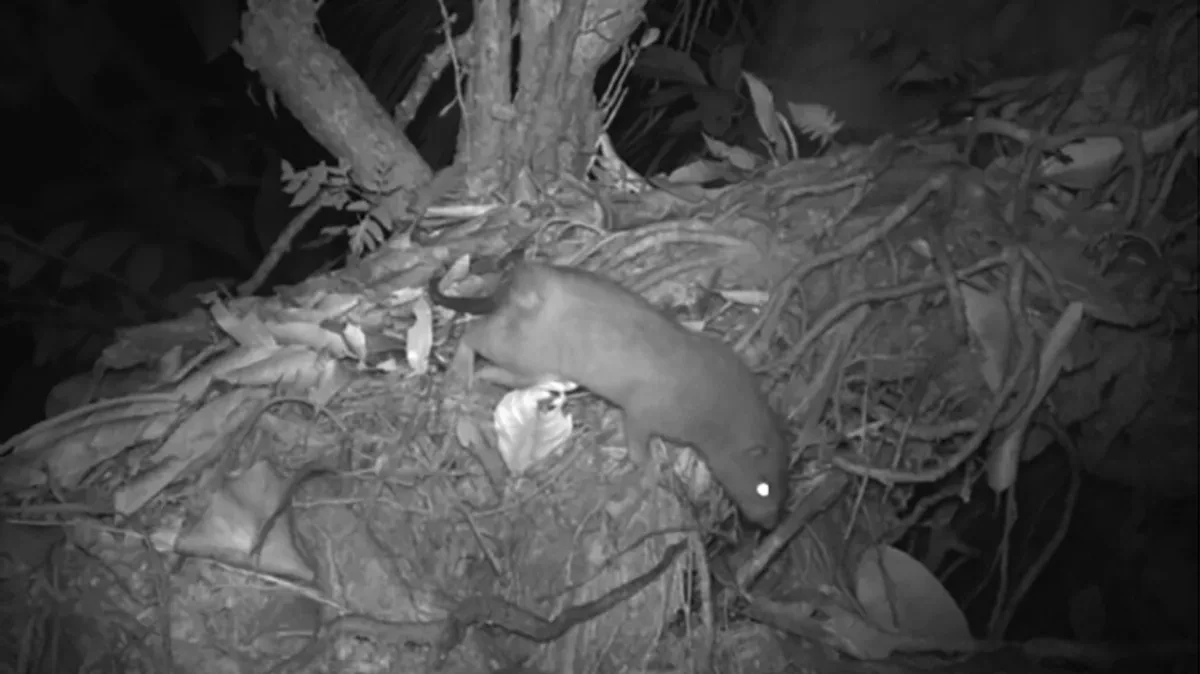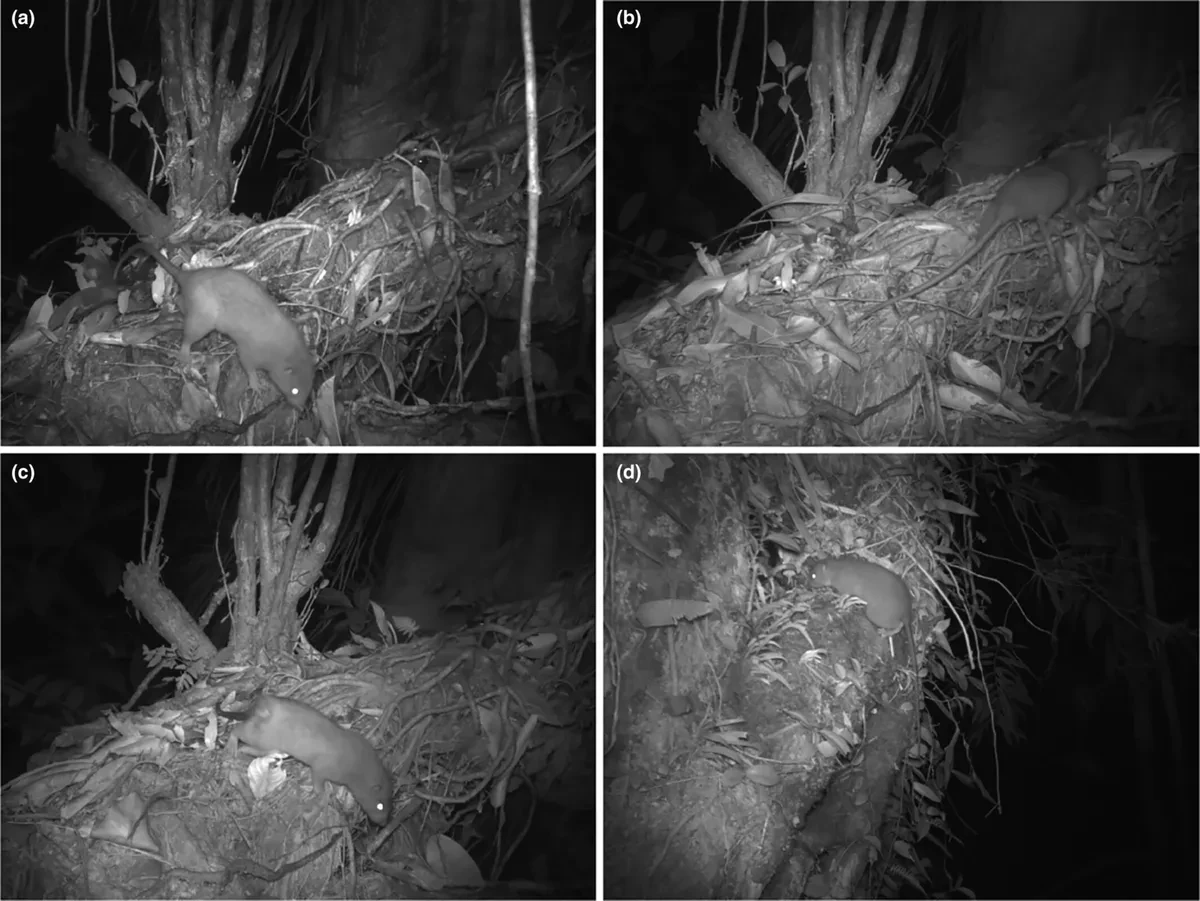Research Team Captures First-Ever Images Of Giant 1.5-Foot-Long Rat That Can Crack Coconuts
 Source: IFLScience
Source: IFLScience
So, the mystery surrounding these creatures intrigued researchers from Chicago's Field Museum in 2017. They ventured to the islands, intent on discovering the truth.
To uncover the secrets of the Solomon Islands' giant rats, the researchers set up camera traps with tips from locals. By analyzing the images captured, the team could identify and study these creatures, a crucial step in their project reported in the journal Ecology and Evolution.
Their efforts paid off when they not only observed several oversized rodents but also managed to capture one and collect skin samples. The rat, weighing about 1 kilogram and measuring up to 45 centimeters, is approximately three to four times the size of common brown or black rats.
Upon returning to their scientific base in Chicago, the researchers analyzed the skin samples they collected. The results confirmed the whispers—the Solomon Islands harbored a previously unknown species. They named it Uromys vika.
 Source: IFLScience
Source: IFLScience
The Chicago team, despite their efforts, couldn't film the Vangunu giant rats, so they had to draw illustrations based on descriptions. In their recent study, the researchers set up camera traps on Vangunu, following advice from locals.
The traps worked, capturing 95 images of the rats. After analyzing the pictures, the researchers identified four individuals. This marked a shift in the scientific understanding of these enigmatic creatures.
However, the Vangunu giant rats, teetering on the edge of extinction, face a dire threat from logging activities that are destroying their habitat.
The researchers' urgency becomes clear, as their work not only captures the essence of a species on the brink but also serves as a reminder of the delicate balance between discovery and conservation in our ever-changing natural world.
If you love this story, share this article with your family and friends. For more stories about unusual creatures, click here!
Related Articles
- Gorilla Tries To Run Into Cold Water, Regrets It, And Then Acts Cool As If Nothing Bad Happened
- The Heartwarming Tale Of Gentle Outcast Cat's Journey From The Streets To Loving Home In NYC
- Cat Left Behind In Apartment When His Family Moved Is Happy When Finally Adopted After 5 Months Of Waiting
- Man Out Paddle Boarding Suddenly Realizes He Has Chance Encounter With A Very Curious Manatee
- Woman Finds Flowers All Over Bedroom Every Day - Then Relizes They Were Left By A Secret Admirer
- This Man Stops To Rescue 'Angry' Animal In The Road—And Ends Up Making A Friend
- Photographer Spots A Haunting Face Pleading For Help On Beach
- Shoppers Are Completely Stunned As They Spot A Face Pleading For Help At Store’s Glass Door
- Couple Adopts Bulldog Who Looks Similar To Their Pet and Gets A Big Surprise
- Man Sets Up Owl Nesting Box, Then Surprisingly Discovers Fluffy Visitor Inside